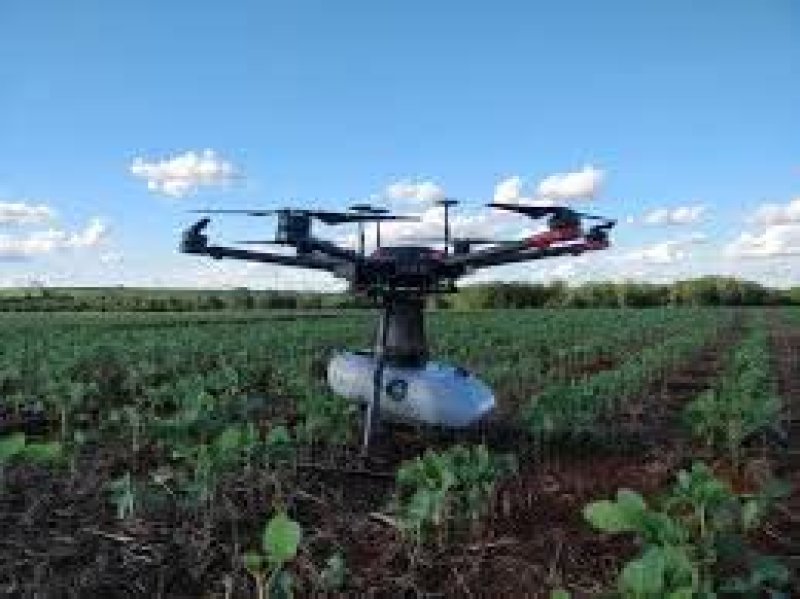
Agricultural Technology in Israel

This success is not only due to advanced technologies but also to the comprehensive integration of related practices, including soil preparation, seed improvement, water management, and post-harvest handling.
Core Components of Agricultural Practice in Israel
Soil Protection and Preparation – Emphasis on soil health, erosion prevention, and preparation techniques to maximize productivity.
Use of Improved Seeds and Planting Methods – High-yield, climate-adapted seed varieties and precision planting techniques.
Efficient Water Supply and Network Management – Intelligent irrigation systems and effective water distribution infrastructure.
Timely and Targeted Use of Fertilizers – Nutrient application tailored to crop needs, soil conditions, and growth stages.
Judicious Use of Pesticides and Herbicides – Application based on data, ensuring minimal environmental impact.
Utilization of Agricultural Machinery – Mechanization to improve efficiency, reduce labor costs, and increase output.
Advanced Harvesting, Storage, and Post-Harvest Technologies – Systems to minimize waste and preserve product quality.
Water Management and Innovation
Water scarcity has long challenged Israeli agriculture. In response, Israel has become a world leader in agricultural water management, pioneering methods such as:
Drip Irrigation – Developed in Israel, this method delivers water directly to plant roots, minimizing waste and maximizing yield.
Wastewater Reuse – Israel recycles approximately 90% of its wastewater for agricultural use, the highest rate globally.
Desalination and Smart Irrigation Networks – Technologies that enhance water availability and optimize usage.
Key Areas of Israeli Agtech Leadership
1. Precision Agriculture: Data-Driven Farming
Israeli agtech leverages cutting-edge technologies to provide farmers with actionable insights and optimize resource use.
Sensors, Drones, and AI – Tools that monitor soil moisture, plant health, pest activity, and weather conditions in real time.
Automation and Optimization – Smart systems adjust irrigation, fertilization, and pesticide use based on data.
Notable Companies:
GreenEye Technology – AI-powered smart spraying systems that target weeds precisely, drastically reducing herbicide use.
Edete Precision Technologies – Artificial pollination systems that support fruit orchards in areas with declining bee populations.
Blue White Robotics – Provides autonomous tractors and fleet management platforms.
2. Controlled-Environment Agriculture (CEA):
Israeli innovations in greenhouse and vertical farming allow for year-round, high-efficiency production.
Advanced Greenhouses – Climate-controlled structures with sensors and automation.
Vertical Farming – Multi-layered systems that maximize space and reduce environmental footprint.
Notable Innovations:
Tevel Aerobotics Technologies – Autonomous flying robots that harvest fruit with precision.
Autonomous Greenhouse Systems – Robotics and AI controlling planting, harvesting, and climate.
3. Biological Pest Control:
Israel promotes eco-friendly pest management through biological solutions that reduce dependency on chemicals.
Beneficial Insects and Predators – Natural enemies of pests are introduced into fields and greenhouses.
Bumblebees for Pollination – Efficient and sustainable pollination for fruit and vegetable crops.
Example:
BioBee Biological Systems – Exports beneficial insects to over 50 countries, contributing to sustainable pest control globally.
4. Sustainable Water Technologies:
Water innovation is the backbone of Israeli agriculture.
Drip Irrigation Systems – Pioneered by Netafim, these systems are used globally to conserve water.
Water Recycling and Desalination – Transforming saline and used water into valuable agricultural resources.
5. Additional Innovations:
Mycorrhizal Fungi – Companies like Groundwork BioAg produce low-cost mycorrhiza, enhancing plant resilience and nutrient uptake.
Regenerative Agriculture – Technologies promoting soil health and reducing chemical inputs.
Smart Beehives – Algorithms and IoT monitor hive health, temperature, humidity, and colony activity to support pollination and honey production.
Global Impact
These advancements enable Israel to maintain high crop yields and food self-sufficiency despite harsh environmental conditions. Beyond national benefit, Israeli agtech contributes significantly to global food security by exporting technology and knowledge to countries facing similar challenges
Story credit to Mr.Nimal Bandara SrLankan Ambassador to Israel


